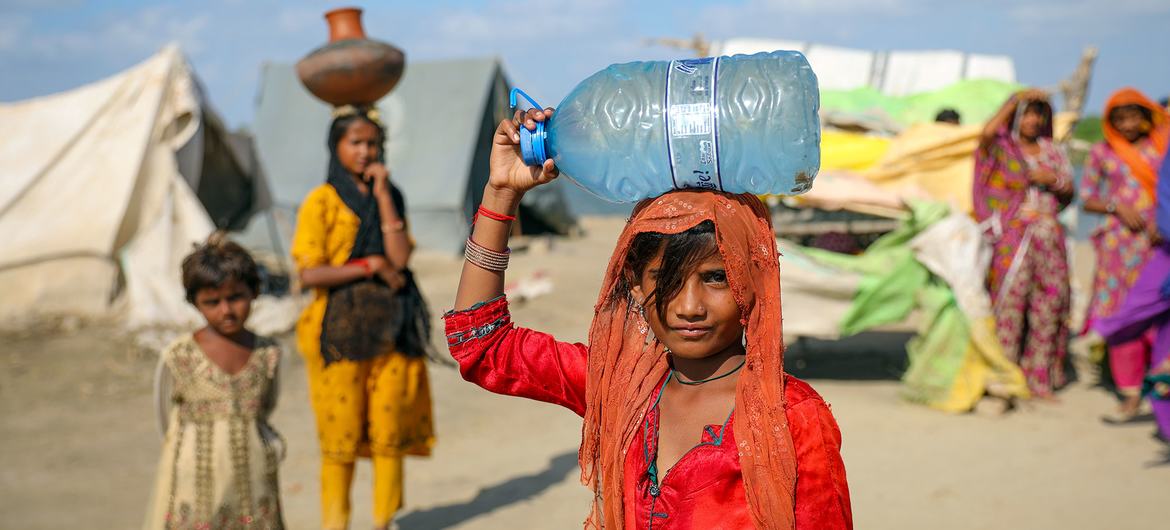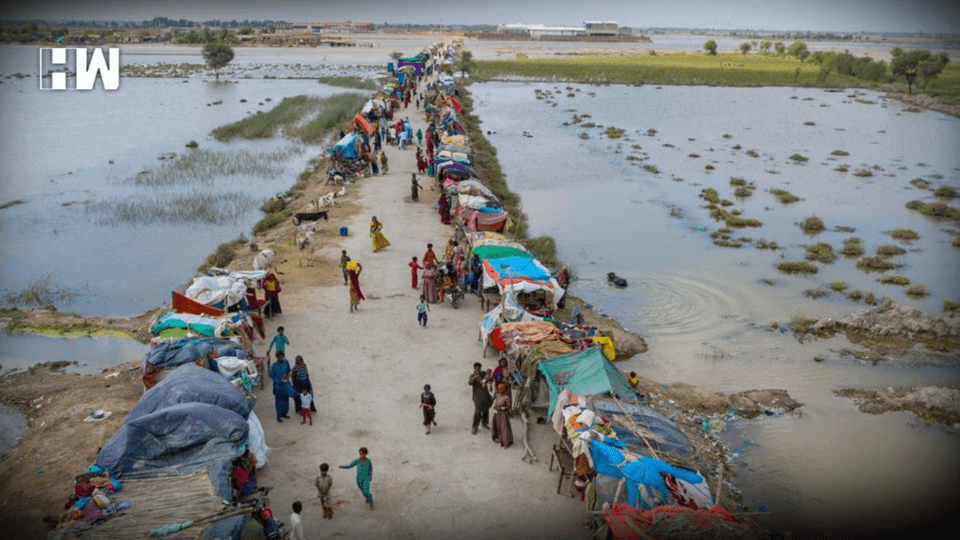Battling what the top UN aid official in Pakistan has warned is a “second wave of death and destruction”, following catastrophic flooding since June that left a third of the country submerged, UN humanitarians on Tuesday raised their funding request from $160 million to $816 million.
Julien Harneis, Humanitarian Coordinator for Pakistan, told journalists in Geneva on Monday that there would be an increase in child morbidity, disease outbreaks such as malaria, dengue fever, and increased malnutrition, unless assistance was forthcoming.
⚠️ 20.6 million people are in need of humanitarian aid in flood-ravaged #Pakistan.
@GovtofPakistan, the @UN and humanitarian partners now require US$816M to scale up life-saving assistance.
New response plan: https://t.co/l7F1SM5Gfd https://t.co/4JNlfvmDXV
UNOCHA
The Government needs support to bolster health, nutrition, water and sanitation services across the affected areas of the country, he said.
The flooding has affected 33 million people, and reportedly killed nearly 1,700, with 20.6 million now in need, according to the revised UN Floods Response Plan. published on Tuesday.
Around 9.5 million people are being targeted for lifesaving assistance in the expanded response plan, through to the end of May next year.
Some 84 districts nationwide have been “calamity hit”, according to Government figures, mainly in Balochistan, Sindh, and Khyber Pakhtunkhwa. At least 7.9 million have been displaced, with nearly 600,000 living in relief camps. There re an estimated 800,000 refugees, including around 400,000 children.
“We need all of these funds, and we need them quickly,” said Mr. Harneis, adding that an international support conference will be held later this year to seek more funding for reconstruction and rehabilitation.
‘Public health disaster’ looms: Tedros
WHO Director-General, Tedros Adhanom Ghebreyesus, said that around10 per cent of health facilities had been damaged in the floods.
“The loss of over 1,500 people is tragic – however it is also remarkable that many more did not perish”, he said, adding that was due to “decisive early warning and immediate response actions undertaken by the Government and local communities.”
The Pakistani Government, said Tedros, was “understandably overwhelmed and needs our support.

“The water has stopped rising, but the danger has not. We are on the verge of a public health disaster.”
He said more than 2,000 women in flood-hit areas were giving birth every day, mostly in unsafe conditions.
Emphasis on the people
“Many more lives than were lost in the floods could be lost in the coming weeks if we don’t mobilize greater support for Pakistan”, added the WHO chief, calling for an integrated approach by the international aid community, “that puts less emphasis on the work of each agency, and more on the needs of people.”
He said it was also important to remember that “unless we address the existential threat of climate change, we will be responding to emergencies like this and worse more often.”
As an independent media platform, we do not take advertisements from governments and corporate houses. It is you, our readers, who have supported us on our journey to do honest and unbiased journalism. Please contribute, so that we can continue to do the same in future.

